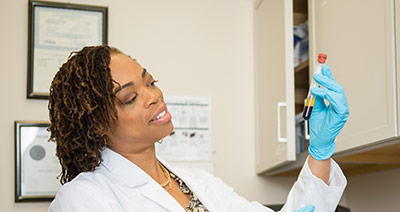When Is It Back Pain Vs Kidney Pain?
The kidneys are an amazing filtration system and play a crucial role in our overall health. Similarly, keeping ourselves healthy also ensures that our kidneys work properly. When the kidneys do not work as they should, they can cause pain and discomfort. However, diagnosing kidney pain is not something that can be done simply by assessing the location of the pain. There are other organs and structures that can trigger pain receptors in that area.
Before we get a little deeper into kidney pain, we must discuss exactly where the kidneys are located. Many people are surprised to know how high up they are. If you drop your arms to your side, your kidneys are somewhere at the level of your elbows, or slightly higher. This may help you understand that many cases of back pain simply do not originate in the kidneys.
When it’s not usually the kidneys:
- Dull or sharp pain in the low back (often confused for kidney pain) is more likely due to a muscle pull, spinal issue, such as sciatica, or an injury. Kidney pain is usually felt higher up in the back and very rarely that low. If you are experiencing dull low back pain and it doesn’t seem to be improving, a visit to your primary care physician should be scheduled.
- Pain that increases after certain activities, especially vigorous activities are typically related to injury and or strain as well. While dehydration is very problematic for your kidneys, the acute pain you may experience during activity is likely not from the kidneys themselves. However, this is a great time to remind you that the kidneys need water. Staying hydrated means that your urine is a pale straw color. If it is any darker, you are dehydrated.
- The pain goes away when you rest. The most common cause of kidney pain is from kidney stones, and this will not improve when you lie down and rest. Similarly, any symptoms of kidney inflammation or kidney failure will not let up with rest.
Of course, symptoms can vary between patients and conditions, so if you believe the pain to be unusual, contact a qualified medical professional to get the right diagnosis.
When it could be kidney pain and what to do…
Kidney pain can be caused by an underlying issue such as a urinary tract infection or UTI. If you feel a sting when urinating, need to urinate more often, have cloudy urine or if you have pain in the groin area, these should be treated promptly. A quick urinalysis can tell us if you have a UTI and it can be treated easily with antibiotics. An untreated UTI can spread to the kidneys and cause more serious complications. You may develop a fever, tiredness and more significant pain which may signal a kidney infection as well.
If you see blood in your urine and there is no reason to suspect this to be normal – such as after a prostate procedure – you should visit your urologist as soon as possible to learn more about what the potential issue could be. While most cases of urine in the blood are easily treatable, we do have to rule out more nefarious causes. Remember, blood in the urine is not always visible, so be sure to have your annual physical/checkup, which should include a urinalysis.
Kidney stones are another source of significant pain in the upper back. If you have kidney stones, you will usually feel waves of pain that are quite sharp, if not debilitating. Pain may be felt in the back, sides or even down towards the groin area. Smaller kidney stones are often passed on their own in time, however larger kidney stones may require a procedure to break them down and let them pass through the urinary system. Treatment may be necessary to avoid kidney issues, so contact your primary care physician or urologist for advice.
The Bottom Line
Without a proper diagnosis from a qualified medical professional, it is very hard to separate kidney pain from the pain of other structures or organs in the area. Kidney issues are often diagnosed using urinalysis, medical history, and diagnostic tool such as CT scans and MRI. The first step is to contact your primary care physician or Urologic Surgeons of Washington for a visit and proper diagnosis.






